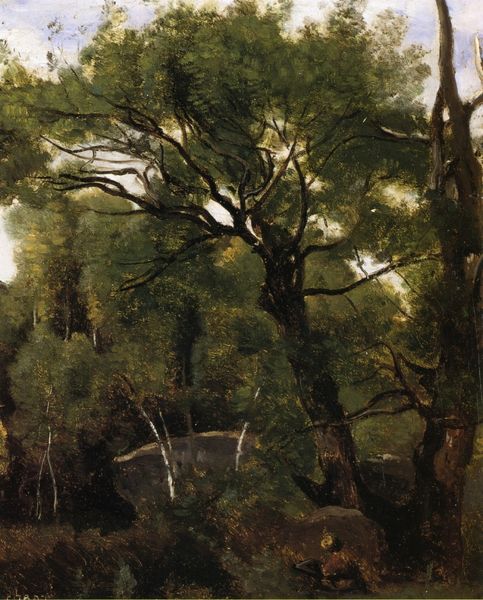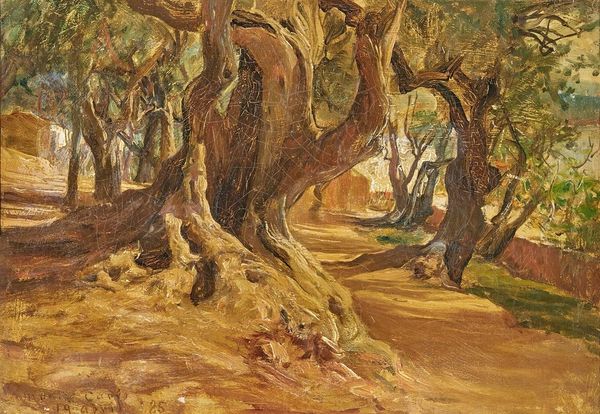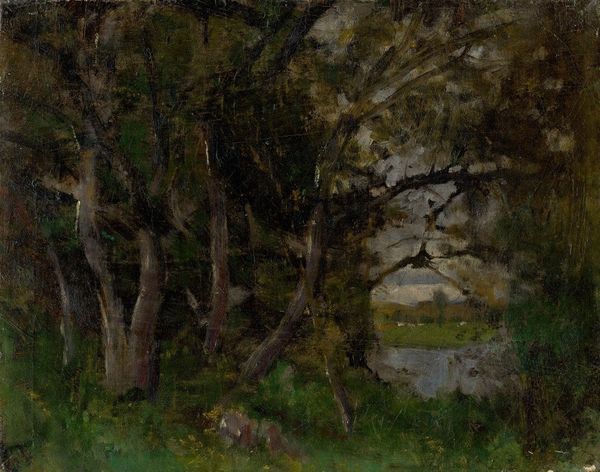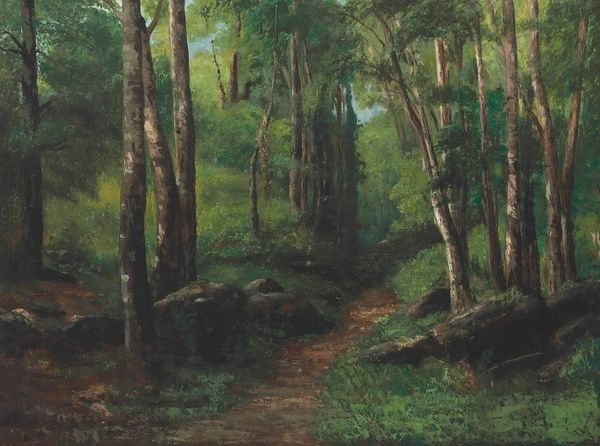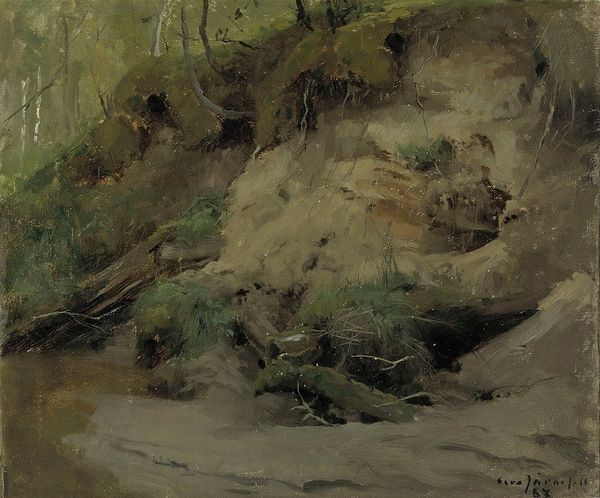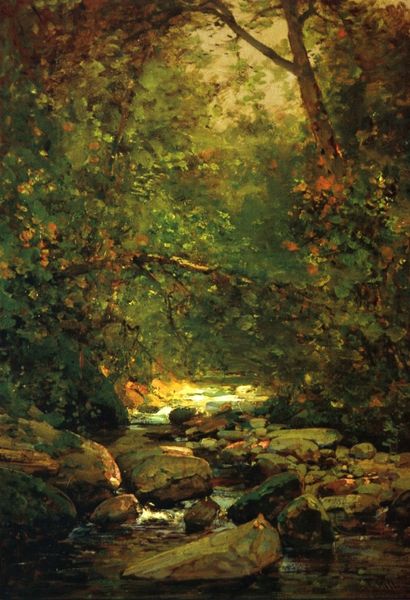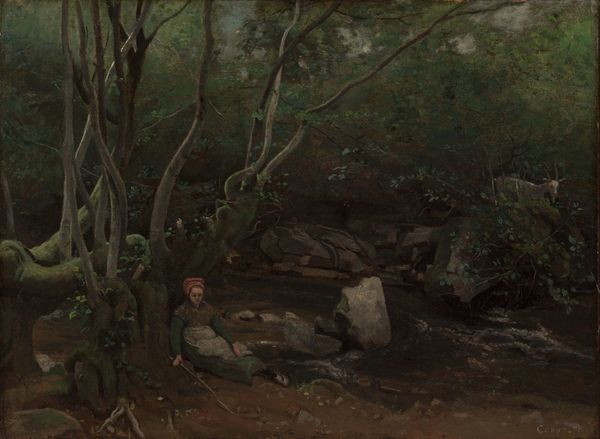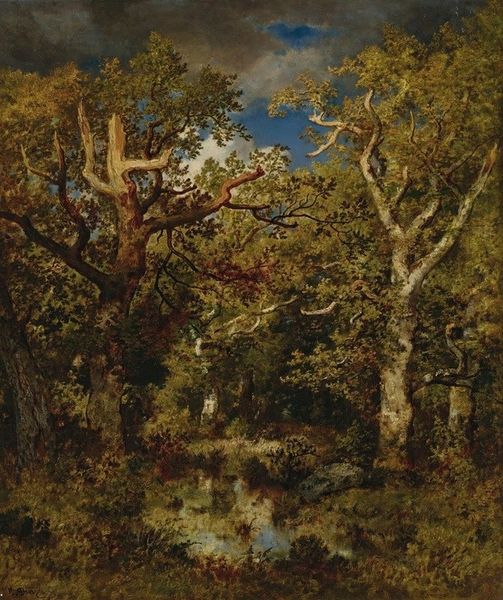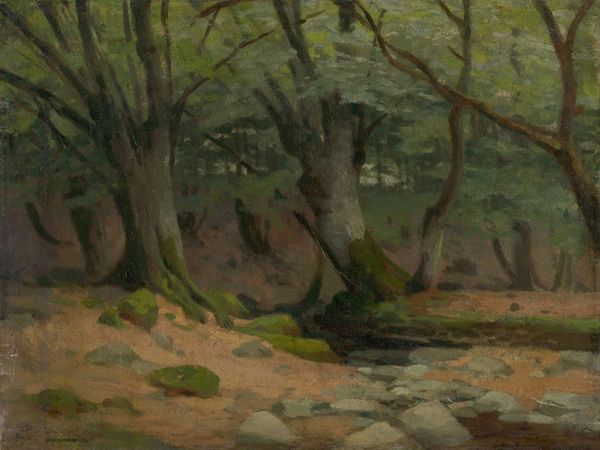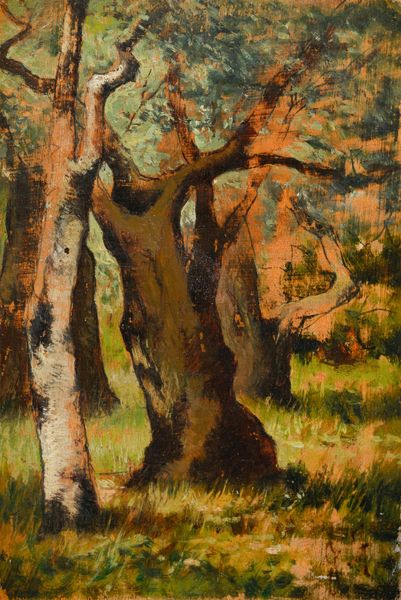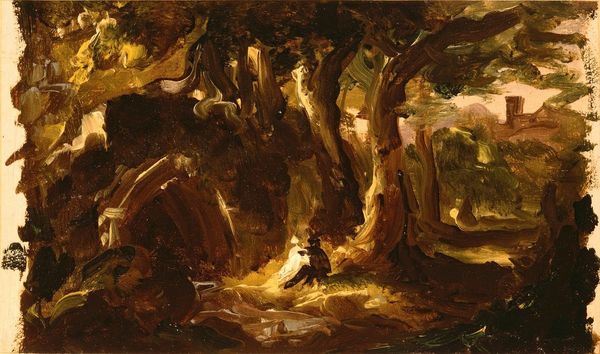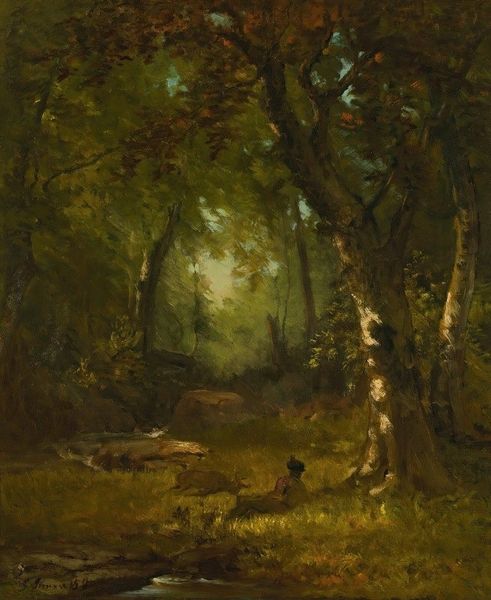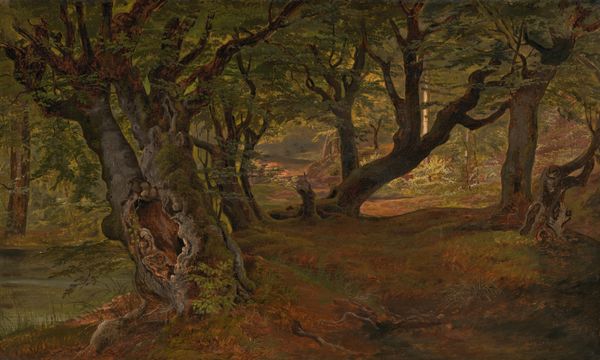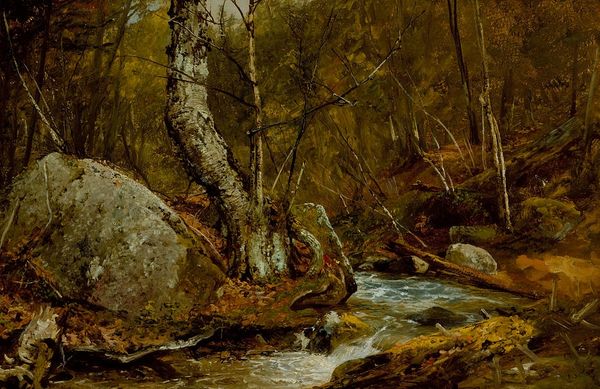
oil-paint
#
oil-paint
#
landscape
#
oil painting
#
romanticism
#
genre-painting
#
realism
Copyright: Public Domain: Artvee
Curator: Vernet's "Departure for the Hunt in the Pontine Marshes," painted in 1833. Editor: My first impression is the density—the close-packed trees create a real sense of depth. And the light is extraordinary, particularly that small patch toward the center, creating a dynamic focal point amidst the gloom. Curator: It's a superb example of genre painting reflecting the romantic idealization of rural life, though it should also be understood in relation to the very real socio-political context of the Pontine Marshes themselves. This was a region that Rome was actively attempting to control and civilize. Editor: Civilize by hunting? I find the contrast between the intricate foreground of twisted trees and the somewhat indistinct hunters rather striking. There’s a palpable tension there in its forms and application of impasto. Curator: Vernet was appointed director of the French Academy in Rome, so depicting such scenes, filled with themes of nature and dominion, would very much be in line with his and the Academy's interests. There’s a dialogue here between the raw, untamed wilderness and the organized hunt as a symbol of imposed order. Editor: And there’s a quiet beauty to the arrangement itself, almost like a stage set—the carefully placed fallen log, the almost caricaturistic form of the main tree at the right—each is meticulously positioned. Curator: I agree. I think that his engagement with landscape underscores themes of territoriality and the relationship between civilization and the wild. Vernet presents a scene rich in cultural implications about control and transformation. Editor: The way light and shadow play across the painting does capture, vividly, the wild character of the place. And yet the subdued palette seems deliberate. There is very little of the dramatic coloration of contemporaries. Curator: He balances the immediacy of Romanticism with academic traditions. It's why he was so celebrated and also later dismissed as simply fashionable. Editor: Thank you, a look beneath the pictorial surface really brings to light the broader themes it represents. Curator: Precisely. I find it helpful to look at how this seemingly simple genre scene really reflects the prevailing attitudes towards nature and control in 19th century Rome.
Comments
No comments
Be the first to comment and join the conversation on the ultimate creative platform.
